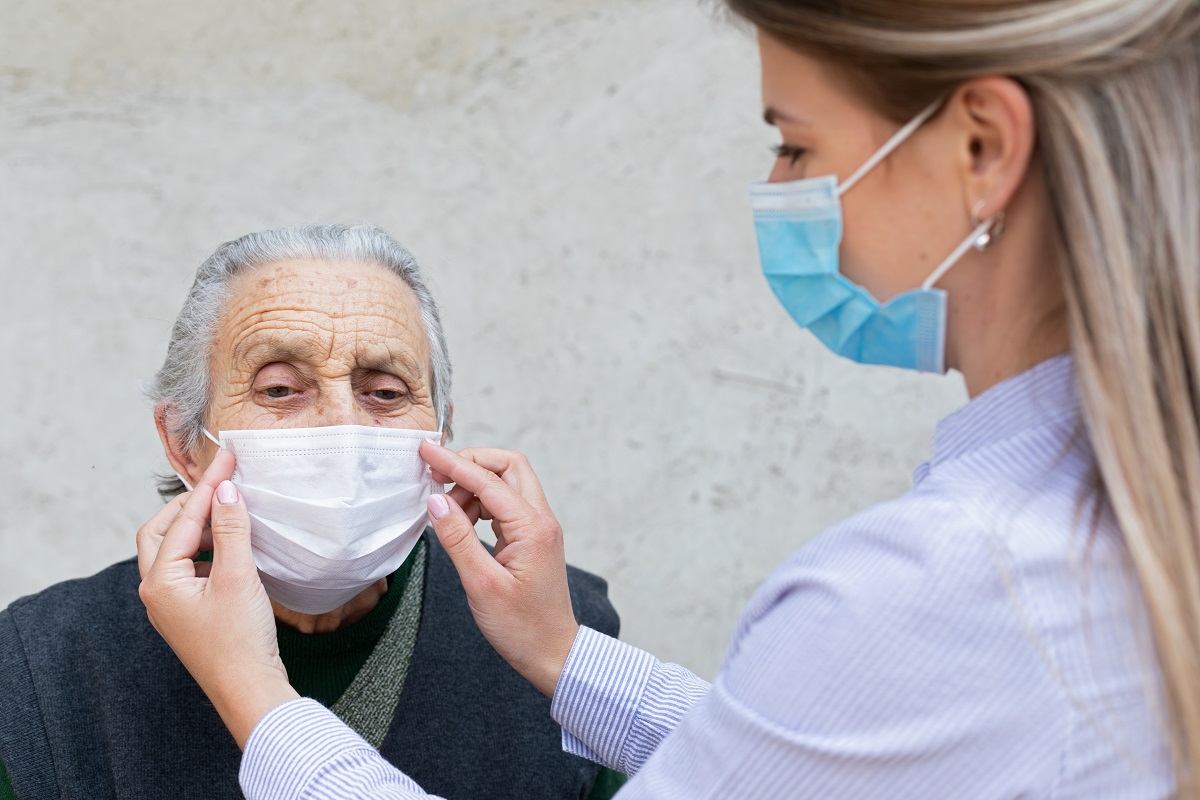Project & Program Updates
New Statewide Collaboration to Support Long-Term Care Facilities During Pandemic
In its newest phase to support long-term care residents and their caregivers, Pennsylvania is launching a partnership between the PA Department of Human Services, the PA Department of Health, the Federal Emergency Management Agency, and key healthcare organizations and health systems across the Commonwealth. Together they will form six new Regional Response Health Collaboratives (RRHC) to test residents and staff of long-term care facilities, form teams to quickly respond to COVID-19 outbreaks, coordinate training and provision of equipment, and more. The Jewish Healthcare Foundation (JHF) will serve as a lead educator in this five-month initiative with three primary responsibilities: First, hosting educational webinars for frontline workers and administrators within personal care assisted living and skilled nursing facilities; Second, creating an online community through the Tomorrow's HealthCareTM platform for collecting webinar materials allowing frontline workers to discuss best practices and challenges; and third, creating resources online and real time opportunities for RRHC field staff from across the commonwealth to learn from each other. In the southwestern and northwestern regions of Pennsylvania, JHF will collaborate with longtime partners UPMC, Allegheny Health Network, and the Healthcare Council of Western Pennsylvania to form the two local RRHCs.
The formation and funding of these rapid response teams was called for by senior advocates, including the members of the Pennsylvania Health Funders Collaborative (PHFC).RRHC clinical partners will help long term care facilities prevent and mitigate the spread of COVID-19 by resolving key issues, including the shortage of available and reliable testing, timely reporting of testing results, and mitigation strategies including infection control, cohorting and staffing support.
As the statewide lead educator in this new initiative, JHF will build on over 25 years of educating, training, and supporting frontline workers who care for senior Pennsylvanians, from being the lead educator of the RAVEN initiative – a Centers for Medicare & Medicaid Services-funded initiative with UPMC designed to improve nursing facility resident outcomes and transitions from hospitals – to a community health worker apprenticeship program, a long-term care champions program, and coordination of PA POLST. Most recently, its strong relationships with both the Pennsylvania Department of Health and the Department of Human Services, resulted in JHF being asked to be the lead educator in the Educational Support and Clinical Coaching Program (ESCCP) that conducted weekly trainings for over 3,000 frontline workers in personal care homes and assisted living facilities from April through June.
"Seniors in long-term care settings, and the staff who care for them, are among the groups hardest hit by the COVID-19 pandemic. In Allegheny County, only 17% of COVID-19 cases occur in persons over the age of 65, but over 90% of the deaths have been in that same age group. Their residential facilities are not equipped to deal with a pandemic," said Karen Wolk Feinstein, PhD, President and CEO of the Jewish Healthcare Foundation, and co-chair of PHFC. "I'm cautiously optimistic to see these partners coming together. There is still much urgent work to be done, including sustainable supplies of PPE, adequate and timely testing, infection control, and support for frontline workers and isolated seniors facing unprecedented challenges."
"Throughout the ESCCP program and as the RRHCs have gotten off the ground, we have connected with dozens of new partners from across Pennsylvania with one common purpose," said Nancy Zionts, COO and Chief Program Officer at the Jewish Healthcare Foundation. "That common value is to develop best practice responses to reduce the impact of the COVID-19 pandemic in long-term care. We still have a long way to go. Once COVID takes hold in a residential facility, urgent, immediate action is essential."
Hopefully these new partnerships guided by the Commonwealth will help to meet the need. This depends on local hospitals sharing supplies and expertise, the relaxation of policies that inhibit immediate action, and the commitment of adequate funding to do what is needed when it's needed.
Related Posts
By accepting you will be accessing a service provided by a third-party external to https://www.jhf.org/
